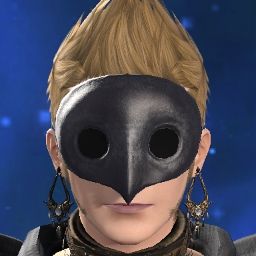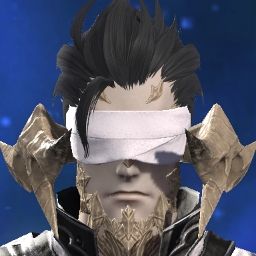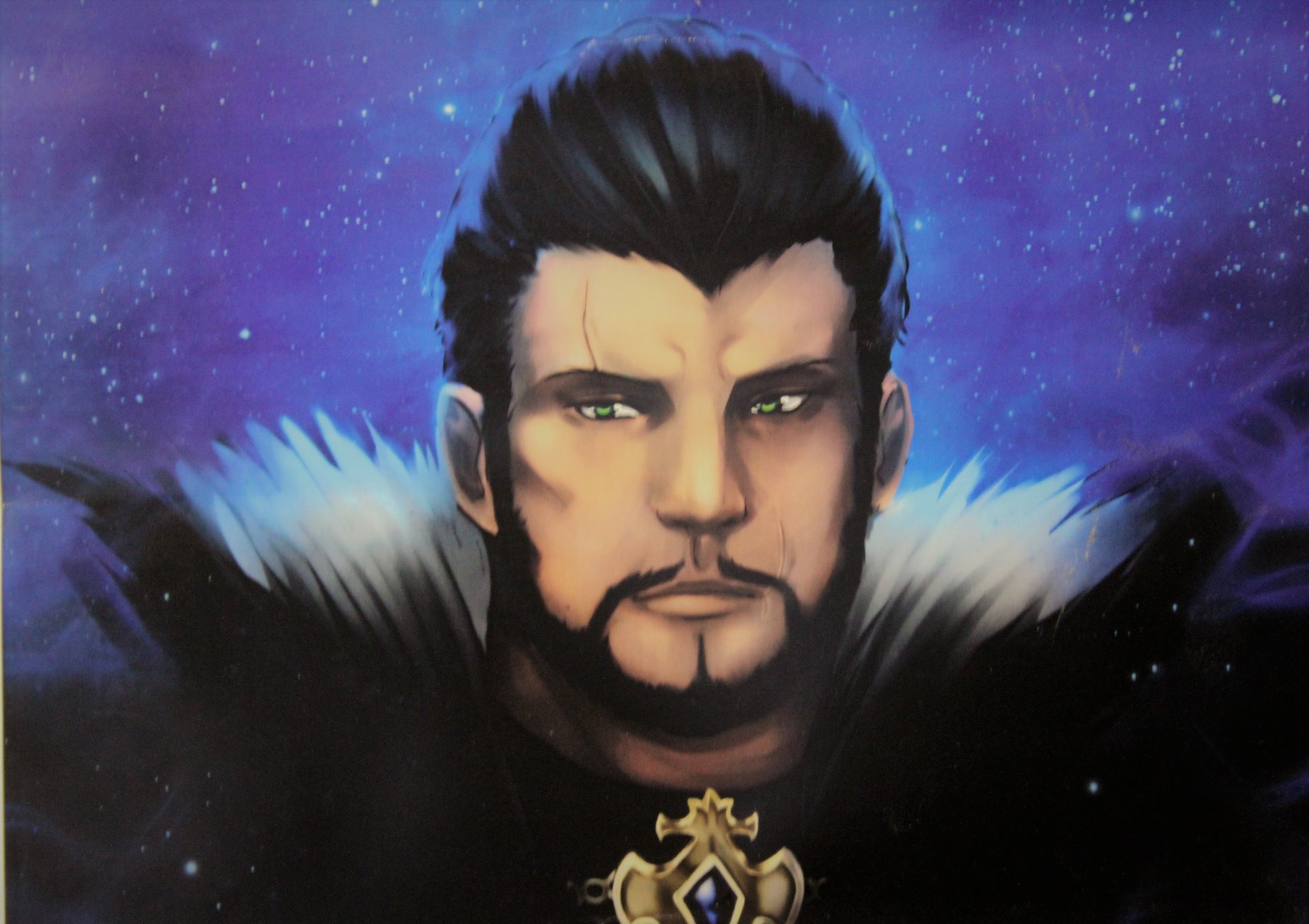Actually, the point of Endwalker was neither "trauma makes you stronger" nor "together we can overcome what individually we cannot." The point of it is exalting the power of the individual, a call to live on your own terms and nobody else's. The collectivist ideals are a consequence of the Eastern lens, I think.
Whether or you like her or hate her, it's impossible to deny that by following her own ideals Venat influenced the course of history more than anyone else in Etheirys' recorded history. Nearly the entire rest of Amaurotine civilization was content to follow the ideals set forth by their society, and when that failed created and looked to Zodiark for guidance instead of deciding for themselves what was worth living for. Standing in stark contrast to Venat's conclusion that life has no objective purpose, it's something you have to decide on your own to find true happiness and fulfillment in life; letting others decide these things for you makes you unable to cope when they inevitably fail, as happened to Amaurot.
... Endwalker is a lot of Nietzsche. Like, a lot a lot. Like, wow.
Thread: What lore do you ignore?
-
01-14-2024 04:40 PM #281Player
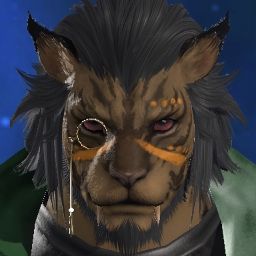
- Join Date
- Sep 2013
- Location
- The Hermit's Hovel
- Posts
- 3,698
- Character
- Trpimir Ratyasch
- World
- Lamia
- Main Class
- Gunbreaker Lv 100
(8)Last edited by Cilia; 01-14-2024 at 04:42 PM.
Trpimir Ratyasch's Way Status (7.3 - End)
[ ]LOST [ ]NOT LOST [X]TRAUNT!
"There is no hope in stubbornly clinging to the past. It is our duty to face the future and march onward, not retreat inward." -Sovetsky Soyuz, Azur Lane: Snowrealm Peregrination
-
01-14-2024 06:32 PM #282Player

- Join Date
- Jul 2023
- Posts
- 416
- Character
- Kasari Silvermoon
- World
- Seraph
- Main Class
- Machinist Lv 100
It's funny that people like this because it has a positive spin, but I don't disagree with your read. And who is the Ubermensch in the FF14 universe? Zenos. I've stated multiple times that Zenos is the embodiment of Venat's philosophy. But people don't like that.
My issue with Venat wasn't that she lived by her own ideals. But that she forced everyone else to live by her ideals by devolving them and shaping their beliefs for the next twelve thousand years. You and I don't seem to disagree on what happened, we just seem to disagree on if that's cool or monstrous.
So you and I actually agree on what happened, and it feels good to at least get that far. I've spent so much time arguing over if I really saw what I saw, it's nice to have someone admit, nah, I saw that too.
ETA: Wait, it just hit me. When she sundered the star, she also believed she was acting in service of what was best for the star. She just didn't bother to work with her people and instead chose to work on them...She's still following the purpose the rest of her species believes to be their reason for existing, to serve the star. The only people truly acting against that believed purpose are the ones who want to replace the souls in Zodiark with some of the star's living energy. For Venat's actions to be truly Nietzschean, she'd have to be as self-serving as people assume I think she is by the way I talk about her.(3)Last edited by Lady_Silvermoon; 01-14-2024 at 06:48 PM.
-
01-14-2024 06:48 PM #283Player
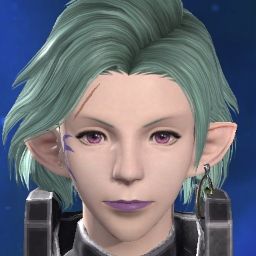
- Join Date
- Sep 2021
- Location
- Solution Eight (it's not as good)
- Posts
- 3,005
- Character
- Ein Dose
- World
- Mateus
- Main Class
- Alchemist Lv 100
I mean, nihilism is not inherently negative. And I think one of the many abstract things Endwalker is focused on, many of which are related, is a very similar fundamental question: 'if life has no meaning, what do you do with it'. And your answer is ultimately personal, but that doesn't mean it has to be individualist: remember that the people who we directly see stare down the End of Days and overcome it are Thavnairians, who end up leaning on faith and religion, an ultimately extremely communal subject. Most of the role quests are also about addressing communal pains and helping each other.
You are so obviously not paying attention to the arguments actually being made, and are stuck so stridently on the one you think you're having.
If I woke up as some rando in the Ancient world, I'm not scared of the End of Days. Frankly, I think I die ten seconds after the skies go red and the city is destroyed, and there's almost a level of comfort in dying so suddenly to something absolutely colossal that I both had no part in creating and had no power to stop; not really a lot of time or place for fear, at least as I process it.
I'm scared of a world where a child's nightmares can become real.
I'm scared of the world where the Behemoth is celebrated as an achievement.
I'm scared of a world so normative they can't even fathom a deviation from the norm--and what that means for me, as someone who so often doesn't fit it.
I'm scared of a world where literally anyone I meet has magic that can cause me great pain and danger, and whose power over that is so tenuous that a stray thought makes it go wrong.
I'm scared of having that power myself.
And I'm scared of a world run by fourteen people who only leave office voluntarily, who select their successors personally when they do, and who are all completely okay with everything I just mentioned.
Yeah, Thavnair's not perfect--even if I dodge the End of Days somehow, this is still a place that lost so many people on a specific pilgrimage that they started praying to the crocodile that might've eaten them--but I would still be happier and feel safer there than Amaurot. And it has nothing to do with who you think.
EDIT: Y'know what, as much as I love the non-sequitir, that needs and deserves the context.(11)Last edited by Cleretic; 01-14-2024 at 06:56 PM.
-
01-14-2024 08:25 PM #284
Yeah, no. why the *hell* would you be scared of a world where the entire society is pretty much gender non-conforming in the sense of "My body is just the one I was born with and does not define me as a person."? One where you don't need expensive surgeries or hormones to change your body if you feel uncomfortable in it because hey, magic can be used to shape your flesh how you want it? I would love to live in a world where I can just ]create whatever is needed so no one needs ever to starve again or fight over scarce resources. I mean, sorry, but your fears seem silly to me when the Sundered world with its pain and scarcity seems so much worse.
(4)
-
01-14-2024 09:23 PM #285Player

- Join Date
- Sep 2021
- Location
- Solution Eight (it's not as good)
- Posts
- 3,005
- Character
- Ein Dose
- World
- Mateus
- Main Class
- Alchemist Lv 100
It says such interesting things about you that you look at a world with one single uniform, and see any form of 'non-conformity'.
There are more parts to me than the flag that hangs in my home and the pills I take every day, all of which weigh in on my feelings about this. But even that part doesn't look at Elpis and see anything I'd want to call 'home'.(9)
-
01-14-2024 09:30 PM #286
Elpis is only one tiny part of the Ancient world. Hell, so is Amaurot for that matter. As someone who has spent most of their life poor, a post scarcity society looks pretty damn appealing to me. Not in the least bit scary. Not to mention, there is a lot more to non conformity than how one dresses. Debate and intellectual pursuits were common in Ancient world because people did not have to struggle to survive and actually had the time and energy for them due to that.
(4)Last edited by redheadturk; 01-14-2024 at 09:34 PM.

-
01-14-2024 10:08 PM #287Player

- Join Date
- Jul 2023
- Posts
- 416
- Character
- Kasari Silvermoon
- World
- Seraph
- Main Class
- Machinist Lv 100
I will never understand how you can make the argument that every man, woman and child deserved to be eradicated because their post-scarcity society was "bad actually" when as she's murdering everyone, she explains it's because they have it "too good" and she's gonna make sure they have no choice but to suffer. Venat wasn't trying to make a better, more just world, if she was, she failed miserably. She was trying to make survivors by running them through a gauntlet. And I'd argue she only succeeded if one's metric for "survivor" are people who weren't murdered by her personally. Then sure. We're a game full of "survivors."
(4)
-
01-14-2024 10:39 PM #288Player

- Join Date
- Sep 2021
- Location
- Solution Eight (it's not as good)
- Posts
- 3,005
- Character
- Ein Dose
- World
- Mateus
- Main Class
- Alchemist Lv 100
If your claim is that the Ancient world beyond the parts we've been to doesn't have the exact same restrictions as the places we've been, then I'd like to see the proof.
I'd be an interesting way to look at things, because Elpis actually does seem to be written as if it's free-spirited and expressive as far as the Ancients go: it's full of creatives trying to follow both aesthetic and functional flair, it's got a number of people written as bucking the trends of the society--Hythlodaeus, Venat and even Athena in their own, very different ways--and they even have a rule that visitors have to remove the masks that are otherwise customary.
And yet every single one wears the exact same thing.
The rest of your post isn't you addressing my stance: it's you explaining yours. That's nice, but I'm not you.
You proved my first sentence so perfectly and directly, I'm actually impressed.(11)Last edited by Cleretic; 01-14-2024 at 10:41 PM.
-
01-15-2024 12:08 AM #289
Wow, who would've thought this thread in particular would devolve into another '' Venat is a terrorist '' thread.
But for me, I generally ignore most race background specific things when it comes to my own WoL, mostly because I find most of that to be dreadfully dull and limiting. Whatever race I choose to play as I play purely for aesthetic sake, not because of the culture of the race.(5)
-
01-15-2024 12:38 AM #290Player
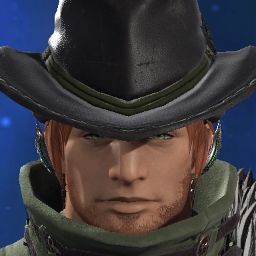
- Join Date
- May 2014
- Location
- The Interdimensional Rift
- Posts
- 3,600
- Character
- Vicious Zvahl
- World
- Excalibur
- Main Class
- Machinist Lv 100
It's pretty common in every FFXIV storyline for the story to lean towards the whole, "Great Man Theory." It's always revolving around world leaders, heroes, and international/worldwide stakes. 1.0 has us deal with Louisoix who was a member of the Sharlayan forum, in addition to the city state leaders of Eorzea. 2.0 was the city state leaders again, along with an organization that places its right to do stuff above that of nations. 3.0 Ishgard's pope, and the leaders of its knight regiments. 4.0 Lord Hien, Ala Mhigan resistance leaders, Emperor Varis. 5.0 Crystal Exarch, Vauthry, Emperor Solus. 6.0 Satrap Vrtra, The entire Sharlayan Forum, Three members of the Convocation of 14 in Ancient times, an Ex-Convocation member, and an ex-Convocation Select.
It's part and parcel of this game's story to highlight exceptional people and put them in our path/by putting them in our path. Venat is no exception. It is completely in line with how XIV's world has always operated. Oh look, she can perceive Fate! She's so much better than everyone in her entire society that not only did she get to lead it, she got to ignore their customs completely with no repercussions or downsides (because ultimately the Ascians' society was a peaceful one that didn't eat people for their faults, but that's not how Venat's eschewal of their customs is framed).
It's less a story about individualism, and more a story about "The Greats." At every turn the bigotry of low expectations runs rampant with our protagonists (they do not believe in the common man). This was once mildly called out from ARR into HW for Alphinaud's character growth through the Lens of his Crystal Braves Debacle. But never really again since, and it still didn't highlight individuals that were less than nation leaders.
Even our own Ancient backstory for the WoL as Azem placed him as one of the Convocation of 14. We were only ever a person who pulled themselves up by their own merits once in this story, and that was apparently between the events of ARR's start and 3.0's Azys Lla segment (discounting the now literal super saiyan aura Hydaelyn gives us in Praetorium). Since then we have been considered the greatest great of the modern age.
In this way, the story of Endwalker and The Sundering and Venat is just a tale of the Greatest Woman Who Ever Lived, Hallowed be Her name. She altered the entire planet in an irrevocable way creating more moral conundrums than an Imperial Dreadnaught has cannons. Paving the way for someone to finally be greater than her, that someone being the WoL. However, we still have to be reminded at every turn that Venat's legacy is still great and responsible for ours.
It's kind of like Watchmen, but there's no one watching the Watchmen in this setting. Well, other than the audience, and the audience is largely sold on this setting's Ozymandias (Venat).(4)
(Signature portrait by Amaipetisu)
"I thought that my invincible power would hold the world captive, leaving me in a freedom undisturbed. Thus night and day I worked at the chain with huge fires and cruel hard strokes. When at last the work was done and the links were complete and unbreakable, I found that it held me in its grip." - Rabindranath Tagore



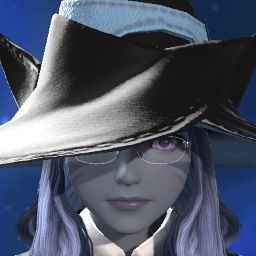

 Reply With Quote
Reply With Quote

